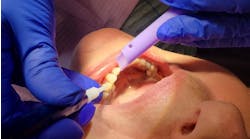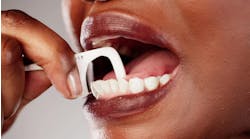Millions expected to lose Medicaid dental benefits
Millions of Americans stand to lose their Medicaid dental benefits following the expiration of the COVID-19 public health emergency on May 11, 2023. Data compiled by CareQuest Institute of Public Health and reported on by NBC News indicates that approximately 15 million people are expected to lose their Medicaid health coverage, and that more than 14 million may lose dental coverage under the Medicaid redetermination process that began on April 1. As part of that process, states are required to conduct eligibility redeterminations and start unenrolling people determined to be no longer eligible for their state’s Medicaid program—a situation with, according to CareQuest, “no guarantee that they will reapply for coverage that will include dental care. This gap will likely have a greater impact on families of lower incomes and people of color.”
Mass. dentist defrauds Medicaid in scheme with other dentist
In other Medicaid-related news, federal prosecutors are recommending an 18-month prison term for a Massachusetts dentist who pleaded guilty to participating in a scheme to defraud MassHealth while another dentist—himself the subject of several lawsuits and investigations over allegations of negligent care—gave subpar care to patients. Scott Cale, from Chelmsford, Massachusetts, was hired by fellow dentist Anthony DiStefano after DiStefano was barred from participating in the MassHealth insurance program over concerns of poor-quality patient care. According to prosecutors, over a four-year period, dental services DiStefano delivered—where some “patients were harmed and received dangerously poor care”— were billed to MassHealth using Cale’s credentials, with more than $550,000 received from MassHealth.
Periodontitis-fighting gel wins science/medicine innovation contest
Using mice to model periodontitis, a team from the New York University College of Dentistry won STAT Madness, a bracket-style contest to find the best innovation in science and medicine, by creating a gel that treats gum disease. By studying mice with and without succinate receptors and injecting the mice with succinate—a molecule hypothesized to feed some periodontitis-causing bacteria—the team determined that succinate contributed to bone loss in the mice that developed periodontitis. They then made a gel formulation of a compound that blocks succinate to prevent and decrease the symptoms of periodontitis.






